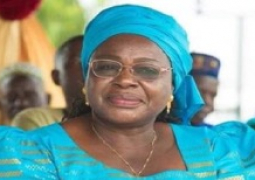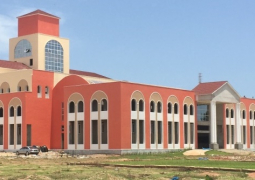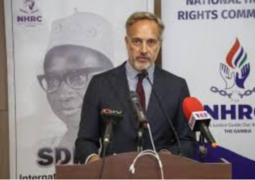This year’s theme was “change the narrative on migration”, and therefore, the event was held with the view and vision of changing the narrative on migration in The Gambia from that of fear, division, and exclusion to that of hope, inclusion and the change that urged to have been seen through discussion and enlightenment of participants. Also, for further awareness they screened a film about migration to show the evil, discrimination and prejudice that migrants, returnees in particular, face from society.
Dr. Desta Tiruneh, WHO Country Representative in his remarks on behalf of UN Resident Coordinator said, “for The Gambia, safe migration and the protection of migrants is of direct concern. Being a country of destination, origin, it is increasingly becoming a country of transit and return of migrants. Gambian nationals rank high amongst migrants undertaking the Central Mediterranean route from Sub-Saharan Africa, mainly Libya and Tunisia, to Italy.”
“The patterns of migration indicate that many young Gambians are willing to risk their lives and resources to undertake the perilous journey across the desert to the Mediterranean Sea to Europe. With hope of finding greener pastures, most of them become trapped in the web of migration regulations of their countries of transit and destination. Feeling compelled to take dangerous routes and recur to ways to cross borders in irregular ways.
On behalf of the NHRC Chair, Isatou Cham, Head of Communications, NHRC, said: “these migrants often put their lives at risk when they embark on irregular routes where they encounter several violations of their rights including abuse and sexual assault.”
“Earlier this year, the NHRC led investigations into female returnees from Lebanon. The stories of these women are far from the lives they imagined beyond the borders of this country. Through this investigation, NHRC realised the importance of addressing irregular migration and protecting the rights of migrants through multi-sectoral approach. We all have an important role to play as we work towards ensuring safe and regular migration as a fundamental human right,” she articulated.
The International Migrants Day which was celebrated three days ago was adopted by the United Nations General Assembly 21 years ago on 4th December 2000 and it requires states to respect, protect and fulfill fundamental and basic rights of migrants at all times, regardless of status. It was in this vein that it was celebrated this year and it would continue to be celebrated these coming years.
Read Other Articles In National News
Freedom House to train 15 Gambian journalists on investigative reporting
Aug 19, 2024, 11:26 AM

Education Ministry breaks silence on St. Therese’s School veils seizure
Nov 9, 2022, 11:01 AM



